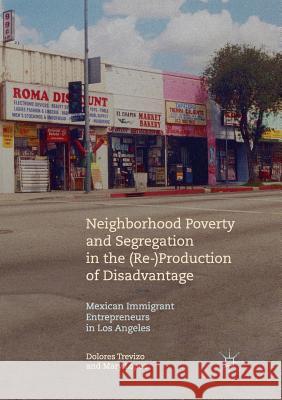Neighborhood Poverty and Segregation in the (Re-)Production of Disadvantage: Mexican Immigrant Entrepreneurs in Los Angeles » książka
topmenu
Neighborhood Poverty and Segregation in the (Re-)Production of Disadvantage: Mexican Immigrant Entrepreneurs in Los Angeles
ISBN-13: 9783030088415 / Angielski / Miękka / 2019 / 211 str.
Neighborhood Poverty and Segregation in the (Re-)Production of Disadvantage: Mexican Immigrant Entrepreneurs in Los Angeles
ISBN-13: 9783030088415 / Angielski / Miękka / 2019 / 211 str.
cena 92,77
(netto: 88,35 VAT: 5%)
Najniższa cena z 30 dni: 88,64
(netto: 88,35 VAT: 5%)
Najniższa cena z 30 dni: 88,64
Termin realizacji zamówienia:
ok. 22 dni roboczych.
ok. 22 dni roboczych.
Darmowa dostawa!
Kategorie BISAC:
Wydawca:
Palgrave MacMillan
Język:
Angielski
ISBN-13:
9783030088415
Rok wydania:
2019
Wydanie:
Softcover Repri
Ilość stron:
211
Waga:
0.27 kg
Wymiary:
21.01 x 14.81 x 1.22
Oprawa:
Miękka
Wolumenów:
01
Dodatkowe informacje:
Wydanie ilustrowane











